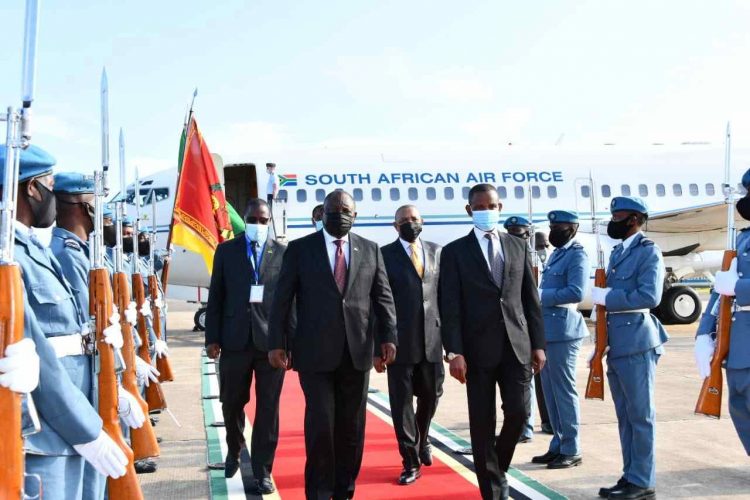For two days, African leaders in the SADC (Southern African Development Community) will gather at an extraordinary Troika Summit to discuss the recent Mozambique terror attack.
SADC meets to map response to Mozambique terror attack
Last week, the world witnessed a well-orchestrated insurgency led by a local jihadist group linked to the notorious ISIS, that left dozens dead and more than 100 000 Palma residents displaced.
The pillaging of innocent lives — some reportedly beheaded in the streets of the island town that sits a short distance away from the famous Total gas project site — cast a light on the growing problems faced by Mozambique in its efforts to quell the egregious levels of violence committed by Al-Shabab jihadists in the northern parts of the coastal country.
Now more than ever, it is clear to SADC member states that the threat posed by jihadists is unprecedented. If the Al-Shabab militia was able to executive a high-precision invasion in Mozambique, what lengths are jihadists willing to go to send a strong message to its enemies?
President Ramaphosa heads to Maputo
This question and many other security and defence considerations will be thoroughly combed out in the two-day Troika Summit. President Cyril Ramaphosa left South Africa on Thursday morning, in a chartered flight to join attend the SADC talks in Maputo.
From what we understand, the president was accompanied by delegates in the military, intelligence services and the police ministry.
There, South Africa, as a SADC member state, will contribute towards mapping an effective response to terrorism in Mozambique.
A high priority subject in the two-day summit is Mozambique’s plea for funding and manpower in aiding hundreds of thousands of displaced refugees and victims of the terror attack.
Mozambique terror attack: ‘A humanitarian crisis’
According to Refugee International, “the number of people displaced internally has skyrocketed from 70 000 to 700 000”.
The NGO’s director of communications Sarah Sheffer described Mozambique’s woes as “a humanitarian crisis.”
“Refugees International calls on the international community to mobilise a swift response to this humanitarian crisis and for an end to the violence. Humanitarian actors are already stretched thin: the current humanitarian appeal for the Cabo Delgado emergency is only 1% funded. Donors must step up immediately to provide much-needed support,” she said.






